The elements of I B and II B are called:
Normal elements
Nontypical transition elements
Alkaline earth metals
Alkali metals
To answer the question regarding the elements of I B and II B, we can break it down step by step.
1. Identify the Groups: The elements of I B and II B correspond to Group 11 and Group 12 of the periodic table, respectively.
2. Understand the Classification:
- Group 11 (I B) includes elements such as Copper (Cu), Silver (Ag), and Gold (Au).
- Group 12 (II B) includes elements such as Zinc (Zn), Cadmium (Cd), and Mercury (Hg).
3. Name the Elements:
- The elements in Group 11 (I B) are commonly referred to as "Coinage Metals".
- The elements in Group 12 (II B) are often called "Zinc Group Elements".
4. Identify the Block: Both I B and II B elements belong to the d-block of the periodic table, which is characterized by the filling of d-orbitals.
5. Conclusion: Therefore, the elements of I B and II B are collectively referred to as "Transition Metals".
Final Answer:
The elements of I B and II B are called "Transition Metals".
---
- Group 11 (I B) includes elements such as Copper (Cu), Silver (Ag), and Gold (Au).
- Group 12 (II B) includes elements such as Zinc (Zn), Cadmium (Cd), and Mercury (Hg).
- The elements in Group 11 (I B) are commonly referred to as "Coinage Metals".
- The elements in Group 12 (II B) are often called "Zinc Group Elements".
The elements of I B and II B are called "Transition Metals".
Similar Questions
Choices for the correct combination of elements from List-I and List-II are given as options (a), (b), (c) and (d) out of which one is correct.


View SolutionChoices for the correct combination of elements from List-I and List-II are given as options (a), (b), (c) and (d) out of which one is correct.
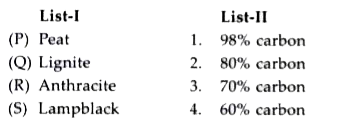
View Solution
Knowledge Check
The elements of group II A are called
Arare earthBalkali metalsCalkaline earthDrare metalsIf A has 5 elements and B has 8 elements such that A⊂B then the number of elements in A∩BandA∪B are respectively :
A8, 5B3, 3C5, 8D5, 13Choices for the correct combination of elements from List-I and List-II are given as options (a), (b), (c) and (d) out of which one is correct.
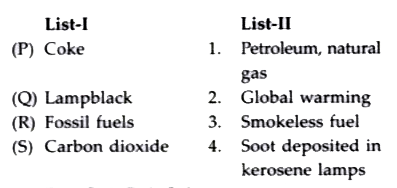 AP-1,Q-4,R-2,S-3BP-2,Q-3,R-4,S-1CP-3,Q-4,R-1,S-2DP-3,Q-1,R-2,S-4
AP-1,Q-4,R-2,S-3BP-2,Q-3,R-4,S-1CP-3,Q-4,R-1,S-2DP-3,Q-1,R-2,S-4
Choices for the correct combination of elements from List-I and List-II are given as options (a), (b), (c) and (d) out of which one is correct.
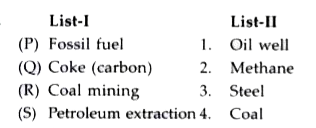
View SolutionChoices for the correct combination of elements from List-I and List-II are given as options (a), (b), (c) and (d) out of which one is correct.
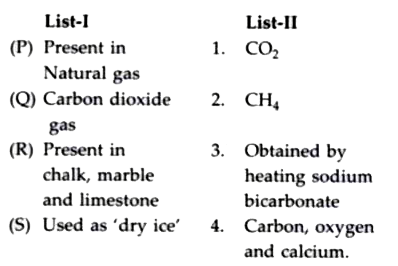
View SolutionChoices for the correct combination of elements from List-I and List-II are given as options (a), (b), (c) and (d) out of which one is correct.
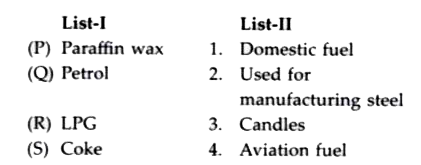
View SolutionChoices for the correct combination of elements from List-I and List-II are given as options (a), (b), (c) and (d) out of which one is correct.
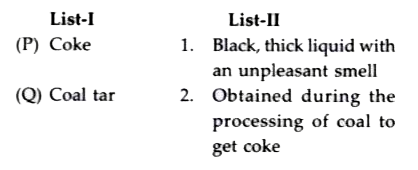

View SolutionChoices for the correct combination of elements from List-I and List-II are given as options (a), (b), (c) and (d) out of which one is correct.
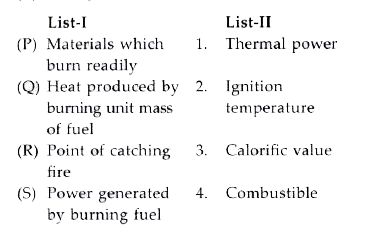
View Solution
